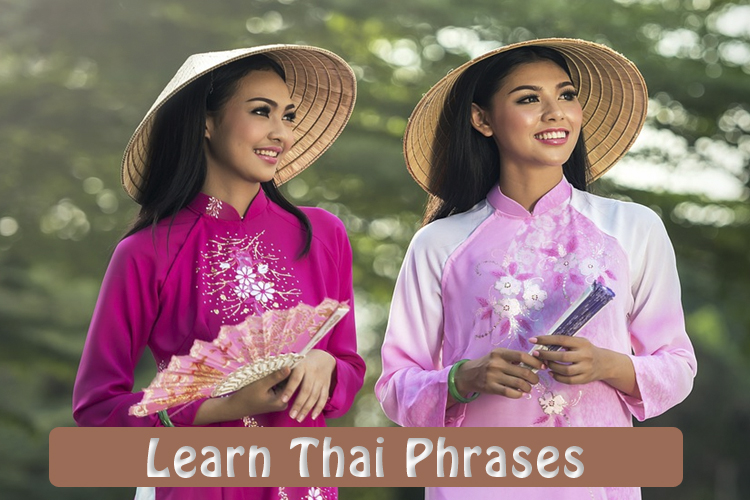MUST- LEARN THAI PHRASES Before you Pack Your Bags
When you move abroad, one of the biggest challenges we face is the language burden. And for people who have travelled a bit, or are a passionate traveller they understand that language barrier is not just limited to basic language skills. There are certain phrases that you can come across and may find themselves jumbled juggling them to find the right answer.
Sometimes, when we travel abroad, we do want to feel invited and are not able to connect with the locals as efficiently as possible. When I travelled Europe last year, there was a sense of disconnection I could feel coz I wasn’t able to greet them, have a bonhomie in local pubs or with the shop owners, which somewhat made me felt isolated. That was the point when I bookmarked learning phrases beforehand whenever I travel to another country, something that helped me exceedingly well in my summer trip to Thailand this year.
Here, I have compiled a list of some must-learn Thai phrases that you must learn before you pack your bags to leave:
For Addressing People
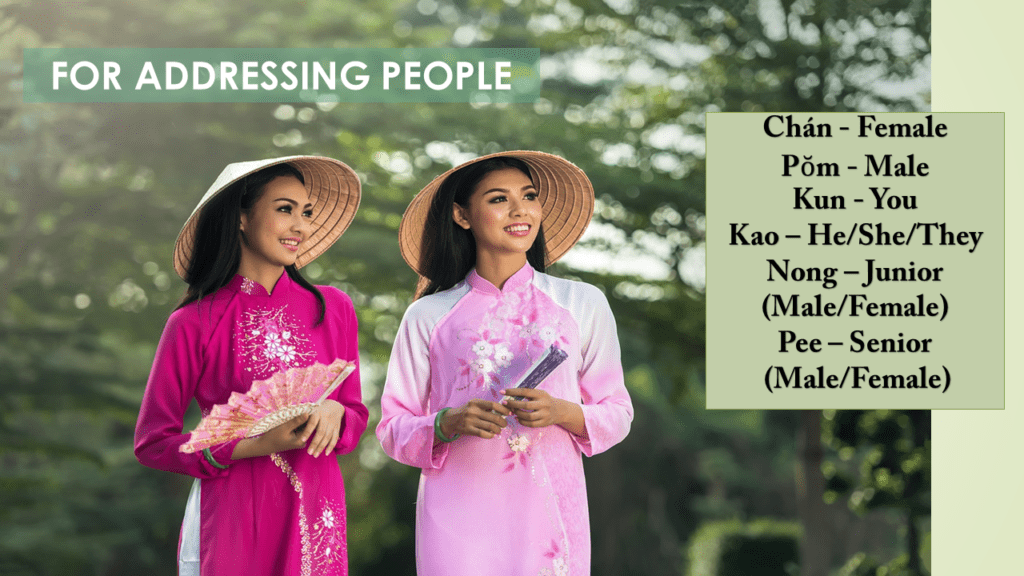
You can’t just point up to someone; but being educated in general terms for addressing people are what is going to get people comfortable with you:
- Chán – Female
- Pŏm – Male
- Kun – You
- Kao – He/She/They
- Nong – Junior (Male/Female)
- Pee – Senior (Male/Female)
For Greeting People
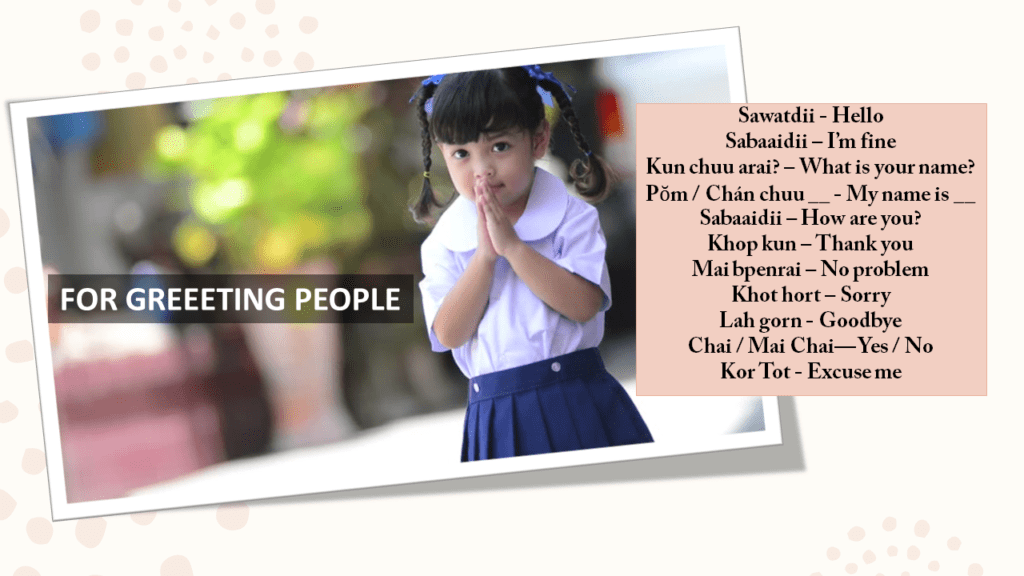
Greeting when you meet a new person, or expressing your gratitude to someone, and so are some instances when connecting in their local phrases is something really takes your connection to the next level. So, here goes some must-know Thai phrases for greeting:
- Sawatdii – Hello
- Sabaaidii – I’m fine
- Kun chuu arai? – What is your name?
- Pŏm / Chán chuu __ – My name is __
- Sabaaidii – How are you?
- Khop kun – Thank you
- Mai bpenrai – No problem
- Khot hort – Sorry
- Lah gorn – Goodbye
- Chai / Mai Chai— Yes / No
- Kor Tot – Excuse me
For Asking / Communicating Directions
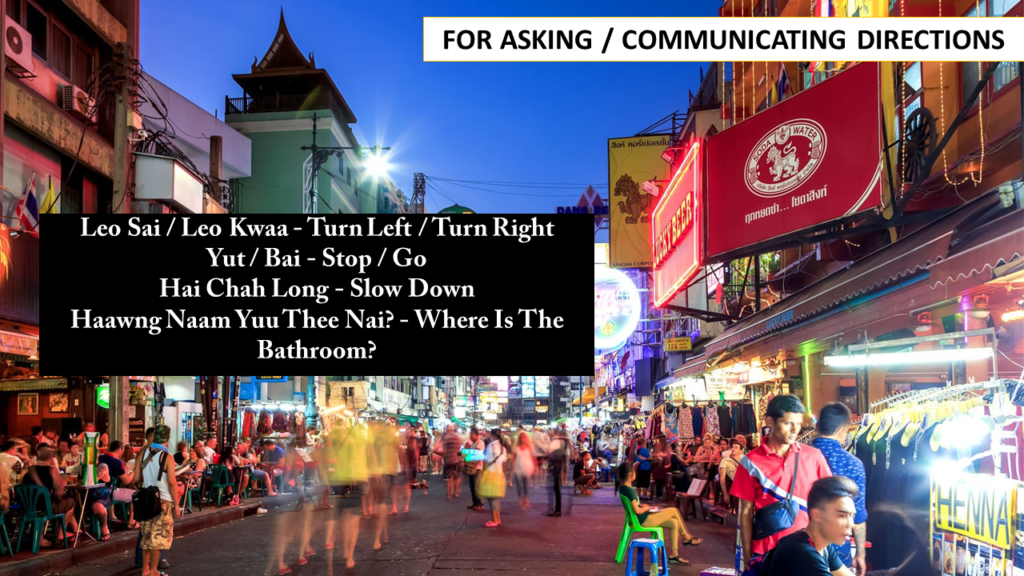
When in a new place, there are always times when you are lost for directions, and you are gonna need some local help to look for the ways around the town. There is possibility that you may meet a local who may not be fluent in English, and so you will need the following phrases ready to ask:
- Leo Sai / Leo Kwaa – Turn Left / Turn Right
- Yut / Bai – Stop / Go
- Hai Chah Long – Slow Down
- Haawng Naam Yuu Thee Nai? – Where Is The Bathroom?
At the Market
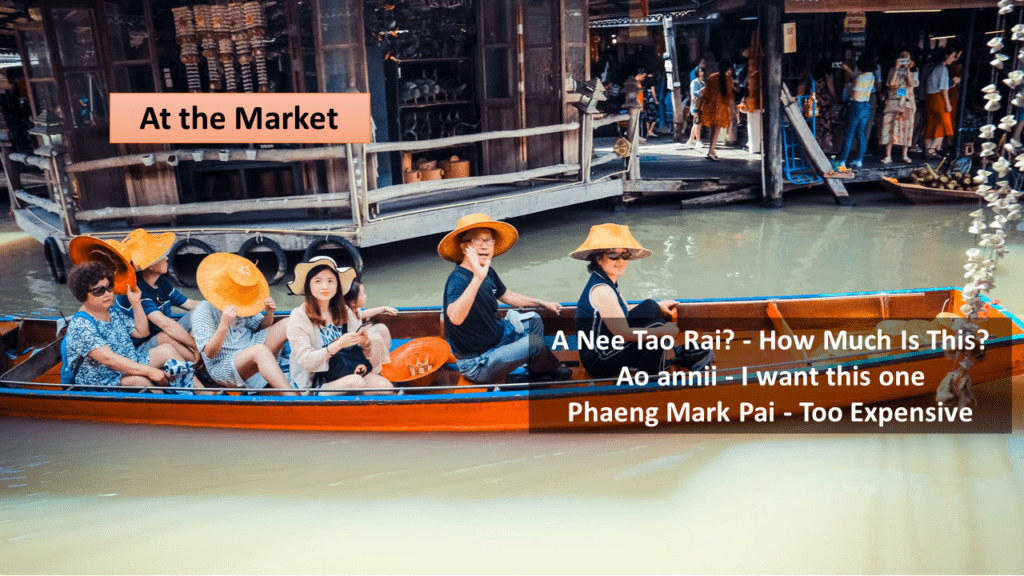
Being fluent in some key phrases can help you negotiate and find the item at good bargain:
- A Nee Tao Rai? – How Much Is This?
- Ao annii – I want this one
- Phaeng Mark Pai – Too Expensive
At a Restaurant
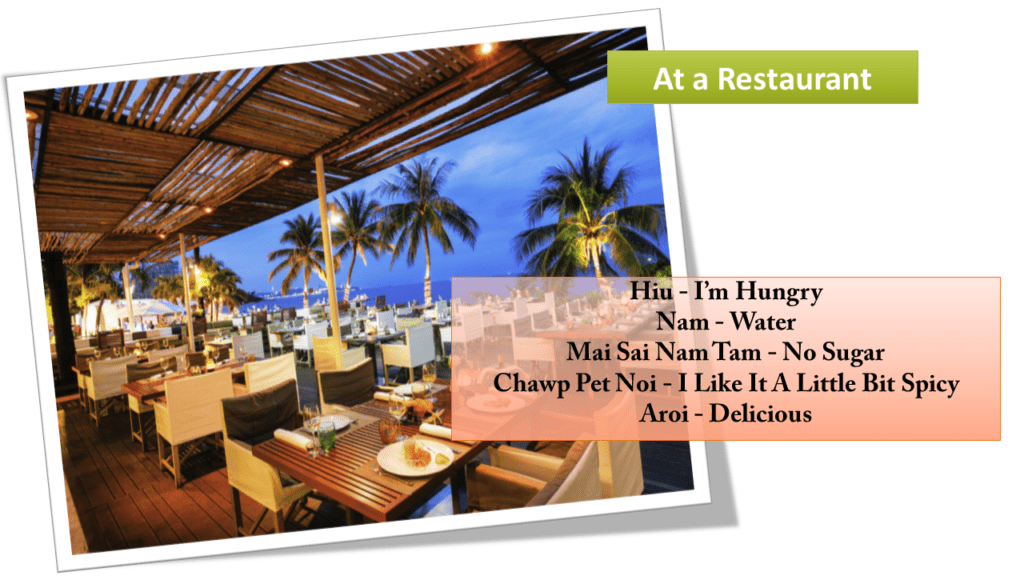
Trying local cuisine is a must-do for every traveller. But finding a delicious food item, talk about the cuisines with a restaurant staff and get personalised service can get comfortable when you are proficient in following phrases:
- Hiu – I’m Hungry
- Nam – Water
- Mai Sai Nam Tam – No Sugar
- Chawp Pet Noi – I Like It A Little Bit Spicy
- Aroi – Delicious
So, these are some key phrases which came a lot handy for me, and I’m sure, these are going to be for you too.


